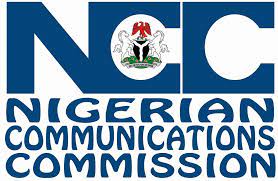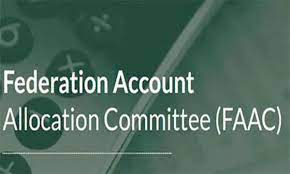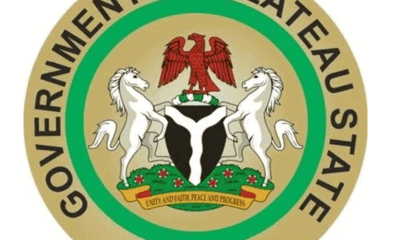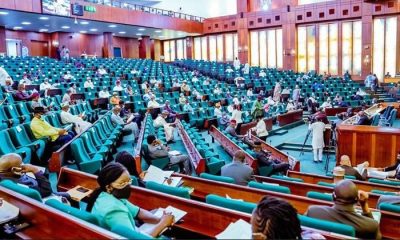Economy
FG to Inaugurate National Plan for Financing Safe Schools in September

The Federal Government says it has concluded plans to inaugurate the National Plan for Financing Safe Schools in September.
Mrs Zainab Ahmed, the Minister of Finance, Budget and National Planning said this at a Stakeholders Forum on the National Plan for Financing Safe Schools on Monday in Abuja.
The minister was represented by the Permanent Secretary, Finance (Special Duties), Mr Shehu Shinkafi.
She said that the education sector was faced with insecurity and stressed the importance of the stakeholders’ forum.
“The ministry constituted a Steering Committee and Secretariat for Financing Safe Schools to engage critical stakeholders in the quest to develop and launch a National Plan for Financing Safe Schools.
“Thus, costed action plans and strategy papers from relevant critical stakeholders collated at the federal level, hence, the need to harness and aggregate state level.”
The minister said the government was committed to ensuring a safer teaching and learning environment and would create adequate budgetary allocation for financing safe schools’ activities.
The Chairman Steering Committee, Financing Safe Schools, Mr Sanjo Faniran said the national plan would be owned by the federal, state and local governments and traditional and community leaders.
“We do want it to be at the level of the Federal Government, it will be owned by all.
“And for such ownership at the federal, state and community levels, is one of the reasons for coming and brainstorming together and arrive at what we need to do as a country which will be articulated.
“The federal, state and local governments will have their roles and our royal and community leaders too, all over the country, and that is where we think of financing most of the security challenges facing our schools.”
Also speaking, Mr David Adejo, the Permanent Secretary, Ministry of Education said the Safe School Initiative (SSI) was a programme established in 2014 following the abduction of about 300 girls from Government Secondary School, Chibok, Borno.
Represented by Mrs Binta Abdulkadir, the Director, Senior Secondary Schools Department, said that the initiative was to provide safer learning environment for children in the northeast.
“The three basic components of the SSI are: student transfer component, schools’ rehabilitation and reconstruction programme, innovative education programme, and social support for Internally Displaced Persons’ children programme coordinated by UNICEF.”
Adejo said the issues of abduction of children by insurgents had gone beyond the north-eastern zones and there was, therefore, the need to finance the safe initiative programme.
According to him, there is the need to expand the programme to accommodate larger number of children dropouts and the out-of-school children and those affected by the insurgency.
In her remarks, Mrs Halima Iliya, Head of Secretariat of Financing Safe Schools in Nigeria said the stakeholders’ forum was meant to harvest the experience, views and suggestions of critical stakeholders.
Iliya said that this would be into the formulation of the national documentation of financing safe schools in Nigeria.
“This is the document that will outline how the Nigerian government wants to address the challenges of insecurity in the education sector.
“This is to ensure safe and more secured teaching, learning and living environment in all schools and learning centres and the roles expected from various stakeholders.”
She further called on stakeholders to work together to ensure the future of Nigerian children were safe.
“It is expected that the national plan which is scheduled for official inauguration in September will draw massively from the contributions here.”
Also, the Chief of Defence Staff Lucky Irabor said the national plan for financing safe schools would identify the most transparent and accountable ways of mobilising educational resources at the federal, state and local government levels.
Irabor was represented by Rear Adm. Chibike Azike, the Director of Education, Defence Headquarters.
“It will also develop a robust collaborative programme and approach to be adopted by the whole society to ensure safety and security of states.
“This national plan initiative will be a major guide in realising safe and secure Nigerian schools,” he said.
The forum had in attendance commissioners for education at the state level, members of the security sector, and traditional leaders among others. (NAN)
Economy
Imo records over $1m from non-oil exports in 2025 – NEPC

The Nigerian Export Promotion Council (NEPC) says exporters in Imo generated a total of 1,244,095 dollars as proceeds from export trade in 2025.
The Imo Coordinator of the council, Mr Anthony Ajuruchi, disclosed this during a follow-up engagement with cocoa farmers in the state on Thursday in Owerri.
50 cocoa farmers and exporters in Imo received 30 cocoa seedlings each in 2025 as part of interventions to boost production for export.
Ajuruchi said the amount was derived from proceeds of both formal and informal export transactions carried out by the farmers within the 2025 fiscal year.
He commended the Executive Director of NEPC, Mrs Nonye Ayeni, and the management team for their support and commitment to the growth of the export market in Imo and across the country.
According to him, the council recorded notable achievements in 2025, including the organisation of capacity-building programmes on non-oil export, product packaging and labelling.
“In addition to our interventions for cashew farmers, we conducted trainings on product development and adaptation, export contracts, market penetration, product certification and export documentation procedures.
“We also trained about 600 exporters and small and medium-scale enterprises,” he said.
Ajuruchi said the engagement with the cocoa farmers was aimed at obtaining feedback and brainstorming on strategies to increase production and export volume in 2026.
One of the beneficiaries, Mrs Sophia Orji, said the cocoa seedlings she received were doing well and had started fruiting after 17 months.
Another farmer, Mrs Mary Okeke, said her cocoa plants were thriving and appealed to NEPC to extend similar support to farmers during the rainy season.
Also speaking, Mr Canice Nze, Director of Produce in the Imo Ministry of Trade, Commerce and Investment, urged the farmers to register with the ministry to enable them benefit from cooperative structures and access possible government grants. (NAN)
Economy
NCC, CBN Approve Refund Framework for Failed Airtime and Data Transactions

By David Torough, Abuja
In line with the consumer-focused objectives of the Nigerian Communications Commission (NCC) and the Central Bank of Nigeria (CBN), the two regulators have drawn up a framework to address consumer complaints arising from unsuccessful airtime and data transactions during network downtimes, system glitches, or human input errors.
The framework is the outcome of several months of engagements involving the NCC, the CBN, Mobile Network Operators (MNOs), Value Added Service (VAS) providers, Deposit Money Banks (DMBs), and other relevant stakeholders.
According to the NCC, these engagements were prompted by a rising incidence of failed airtime and data purchases, where subscribers were debited without receiving value and experienced delays in resolution.
“The Framework represents a unified position by both the telecommunications and financial sectors on addressing such complaints. It identifies and tackles the root causes of failed airtime and data transactions, including instances where bank accounts are debited without successful delivery of services. It also prescribes an enforceable Service Level Agreement (SLA) for MNOs and DMBs, clearly outlining the roles and responsibilities of each stakeholder in the transaction and resolution process,” a statement by Head of Public Affairs of NCC, Nnen Ukoha said.
Under the new framework, where a purchaser is debited but fails to receive value for airtime or data—whether the failure occurs at the bank level or with an NCC licensee—the purchaser is entitled to a refund within 30 seconds, except in circumstances where the transaction remains pending, of which the refund can take up to 24 hours.
The framework further mandates operators to notify consumers via SMS of the success or failure of every transaction. It also addresses erroneous recharges to ported lines, incorrect airtime or data purchases, and instances where transactions are made to the wrong phone number.
Director of Consumer Affairs at the NCC, Mrs. Freda Bruce-Bennett in a comment on the development said the framework also establishes a Central Monitoring Dashboard to be jointly hosted by the NCC and the CBN. According to her, the dashboard will enable both regulators to monitor failures, the responsible party, refunds, and track SLA breaches in real time.
“Failed top-ups rank among the top three consumer complaints, and in line with our commitment to addressing these priority issues, we were determined to resolve it within the shortest possible time,” she said.
“We are grateful to all stakeholders—particularly the Central Bank of Nigeria and its leadership—for their tireless commitment to resolving this issue and arriving at this framework, and for ensuring that consumers of telecommunications services receive full value for their purchases.
“So far, pending the approval of management of both regulators on the framework, MNOs and banks have collectively made refunds of over N10 billion to customers for failed transactions” she explained .
Mrs. Bruce-Bennett further noted that implementation of the framework is expected to commence on March 1, 2026, once the two regulators have made final approvals, and technical integration by all MNOs, VAS providers and DMBs is concluded.
Business News
Budget Office Defends Tax Reform Acts, Seeks Due Process

By Tony Obiechina, Abuja
The Budget Office of the Federation has reaffirmed the integrity of Nigeria’s newly enacted Tax Reform Acts, cautioning against what it described as governance by speculation and unverified claims following allegations of post-passage alterations.
In a statement on Wednesday, the Budget Office said it had taken note of concerns raised by the Minority Caucus of the House of Representatives, stressing that the sanctity of the law is central to constitutional democracy and not a mere procedural formality.
According to the Office, any suggestion that a law could be altered after debate, passage, authentication, and presidential assent without due process would strike at the core of the Republic and undermine citizens’ right to be governed by transparent and stable laws.
However, it warned that democratic integrity is also endangered by the careless amplification of unverified claims. “A nation cannot be governed by insinuation or sustained on circulating documents of uncertain origin,” the statement noted, adding that public confidence, once shaken by speculation, is often difficult to restore.
The Budget Office emphasized that both government and citizens share a common interest in truth, clarity, and due process, noting that public finance depends heavily on trust in the legality and clarity of fiscal laws. It welcomed the decision of the National Assembly to investigate the allegations, describing institutional inquiry, not conjecture as the appropriate response to claims of illegality.
On public access to the law, the Office agreed that Nigerians and the business community are entitled to clear and authoritative texts of all laws they are required to obey. It clarified, however, that the authenticity of legislation is determined by certified legislative records and official publication processes, not by informal or viral reproductions.
The statement also underscored the importance of separation of powers, warning that claims suggesting Nigeria is being governed by “fake laws,” if not backed by established facts, risk eroding confidence in democratic institutions.
At the same time, it stressed that legislative scrutiny should not be dismissed by the executive, noting that oversight is a constitutional duty, not an act of hostility.
From a fiscal perspective, the Budget Office said legal certainty is essential for revenue projections, macroeconomic stability, budget credibility, and investor confidence. While it is not the custodian of legislative records, it maintained that uncertainty around operative tax provisions directly affects economic planning.
To restore confidence, the Office proposed a set of measures, including the publication of verified reference texts in a single public repository, orderly access to Certified True Copies for stakeholders, clear public explanations where discrepancies are alleged, and strict alignment of all implementing regulations with authenticated legal texts.
Addressing calls for suspension of the tax reforms, the Budget Office cautioned against allowing prudence to slide into paralysis. It argued that properly implemented tax reform is necessary to reduce dependence on borrowing and inflationary financing, while easing indirect burdens on vulnerable citizens.
“Where clarification is required, it must be provided; where correction is required, it must be effected; where investigation is required, it must proceed,” the statement said, adding that governance and reform should not be stalled by unresolved conjecture.
The Office concluded by describing taxation as a democratic covenant that binds citizens and the state, insisting that compliance depends on transparency and trust. It called on political actors to protect institutions as much as positions, urging citizens and businesses to rely on verified sources and resist the spread of unauthenticated information.
The statement was signed by Tanimu Yakubu, Director-General of the Budget Office of the Federation, who reaffirmed the agency’s commitment to fiscal transparency, institutional integrity, and reforms that advance national prosperity while safeguarding citizens’ rights.




























